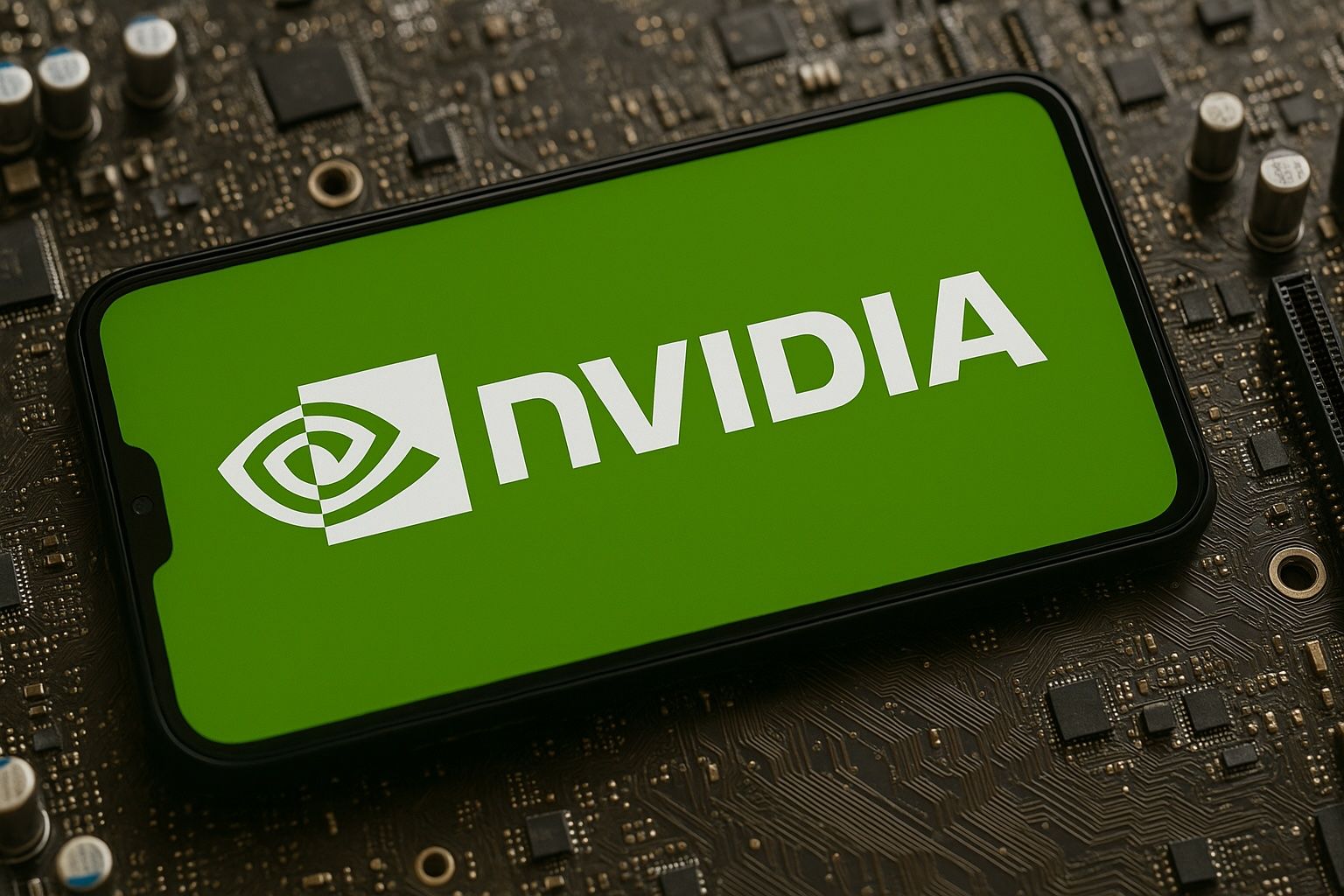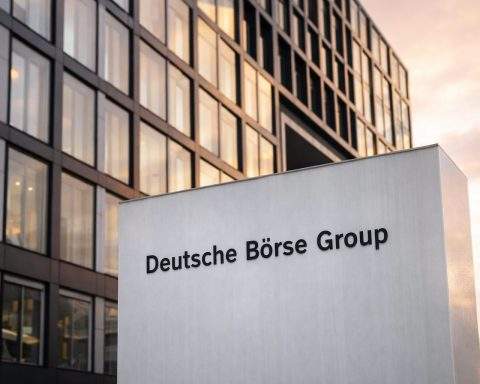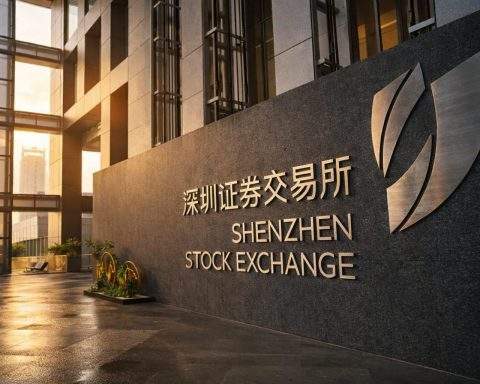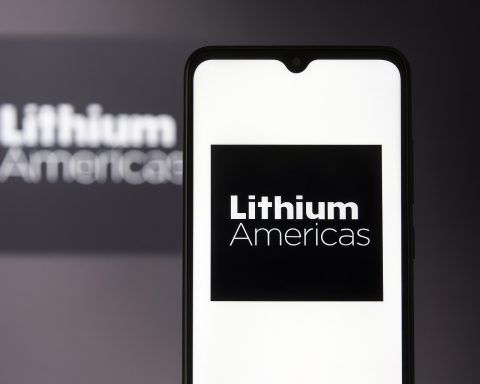- Nvidia insiders sold over $1 billion of company stock in the past year, with more than $500 million sold this month as the share price hit record highs, and CEO Jensen Huang sold stock for the first time since late 2023.
- Nvidia briefly became the world’s most valuable company by market capitalization during the surge, as analysts touted a “Golden Wave” of AI driving its prospects.
- Dubai’s telecom operator du and China Mobile announced on June 30 a collaboration to deploy 5G in Dubai’s metro network to enable ultra-fast, low-latency connectivity for predictive maintenance, safety monitoring, and smart transit features.
- The EU received 76 bids from 16 member states across 60 sites to build AI gigafactories, backed by €20 billion to create four large AI data centers each housing around 100,000 high-end AI chips.
- The CCIA urged delaying the EU AI Act ahead of the August 2 GPAI rule rollout, arguing that critical provisions are missing and more than two-thirds of European businesses struggle to understand their obligations.
- Canada scrapped a planned 3% digital services tax on tech giants just hours before it would take effect, prompting the resumption of U.S.-Canada trade talks with a target deal by July 21.
- Apple is reportedly considering outsourcing Siri’s AI brain to OpenAI or Anthropic, testing their models on Apple’s Private Cloud, with Anthropic seeking a multi-billion-dollar annual licensing fee.
- Meta created Meta Superintelligence Labs led by Alexandr Wang as Chief AI Officer, with Nat Friedman overseeing AI products, after Meta’s $14.3 billion Scale AI investment and recruitment of at least 11 top researchers.
- A breach exposed 16 billion login credentials across about 30 databases, including Apple, Google, VPNs, banking, and government systems, signaling a new era of mega-breaches.
- Pearson and Google Cloud announced a multi-year partnership to develop AI-driven learning tools for primary and secondary schools, including personalized lesson plans and tutoring, with pilots in select schools next year.
Nvidia Insiders Cash Out Over $1 Billion Amid AI Stock Surge
Nvidia’s meteoric stock rise – fueled by frenzied investor enthusiasm for artificial intelligence – has prompted company insiders to sell more than $1 billion worth of shares in the past year reuters.com. Over half a billion dollars of those stock sales occurred just this month as Nvidia’s share price hit record highs reuters.com. Even CEO Jensen Huang joined in, selling stock for the first time since late 2023 according to SEC filings reuters.com. The sales coincided with Nvidia briefly becoming the world’s most valuable company by market capitalization, after an analyst touted a “Golden Wave” of AI driving its prospects reuters.com.
Analysts say the insider sell-off doesn’t necessarily signal pessimism – it also reflects executives taking profits after Nvidia’s valuation skyrocketed over 200% in a year. The chip designer’s GPUs are in unprecedented demand as foundational hardware for AI models, underpinning Nvidia’s climb. Its stock surge exemplifies the broader “AI trade” boosting tech markets reuters.com. Still, the timing of $1B in insider sales during peak prices raises questions. Some market watchers caution that such massive selling can hint at a top, or at least insiders hedging risks, even as Nvidia insists it’s simply aligning personal finances. Nvidia declined to comment on the stock sales report reuters.com, but investors will be watching whether the AI hype continues to justify the lofty valuation or if insider wariness foreshadows a cooling off.
Du & China Mobile Partner on 5G for Metro Systems
The UAE’s telecom operator du is teaming up with China Mobile to deploy cutting-edge 5G connectivity in the country’s metro rail networks btw.media. Announced in Dubai on June 30, this collaboration aims to bring ultra-fast, low-latency wireless service to busy urban transit systems – dramatically improving passenger connectivity and operational data flow. Real-time data transfer enabled by 5G could power new smart metro features: predictive maintenance of trains, enhanced safety monitoring, and optimized traffic management across metro lines btw.media btw.media. Major cities like Dubai and Abu Dhabi stand to benefit as they expand public transport.
This initiative is significant as one of the first in the Middle East to integrate 5G into mass transit infrastructure. It aligns with the UAE’s broader smart city ambitions to use advanced tech for urban improvement btw.media. By equipping metro stations and trains with 5G, the network can support future innovations like autonomous trains, richer infotainment for riders, and seamless connectivity for IoT sensors. It also cements du and China Mobile’s positions as telecom leaders driving regional innovation. Analysts note that success in the UAE’s metro project could set a global example – encouraging other cities to modernize transit with 5G, and opening the door for these companies to export similar solutions worldwide. The partnership underscores how nations with ambitious digital agendas are leveraging telecommunications alliances to leapfrog into the next generation of infrastructure.
Europe’s AI “Gigafactory” Plan Attracts Dozens of Bids
Europe is making a bold play to catch up in the AI race: the EU’s tech chief Henna Virkkunen revealed that 76 companies have submitted bids to build “AI gigafactories” across the bloc reuters.com reuters.com. This overwhelming response surpassed expectations, signaling strong momentum behind Europe’s push for technological sovereignty in artificial intelligence. The EU earmarked €20 billion (~$23B) in funding earlier this year to construct four large-scale AI data centers and computing hubs, analogous to semiconductor fabs but for AI reuters.com. Each facility would house around 100,000 high-end AI chips, forming the backbone of Europe’s AI infrastructure.
“We got 76 submissions proposing to set up AI gigafactories in 16 member states and across 60 different sites,” Virkkunen announced, calling it proof of Europe’s growing enthusiasm for innovating in AI reuters.com. Notably, bidders include both European and international tech firms, data center operators, telecom providers, power companies and investors reuters.com. While officials did not name specific companies due to confidentiality, the interest spans industry giants to startups. If realized, these AI hubs would massively increase Europe’s computing power for training AI models – reducing reliance on U.S. or Asian cloud providers and chips. The plan is part of the EU’s strategy to stay competitive with the U.S. and China in critical tech. European leaders see homegrown AI facilities as key to economic security, supporting domestic research and jobs. The EU will formally solicit detailed proposals by year-end, aiming to break ground on the first AI gigafactories soon after reuters.com. Analysts note that challenges remain – from securing enough semiconductor supply to managing the huge energy needs of such centers – but the enthusiastic initial response bodes well for Europe’s AI ambitions.
Big Tech Lobby Calls for EU to Delay AI Act
European regulators are facing pushback from Silicon Valley as they prepare to enforce the world’s first comprehensive AI law. The Computer & Communications Industry Association (CCIA) – a tech lobby group representing Apple, Google, Meta and other giants – publicly urged EU leaders to “stop the clock” on implementing the EU AI Act, warning that rushed rules could undermine innovation reuters.com reuters.com. Key provisions of the landmark AI Act, particularly new requirements for general-purpose AI (GPAI) systems like large language models, are slated to take effect on August 2. However, some of these rules and guidance documents have been delayed or are still incomplete reuters.com, creating uncertainty for companies.
“With critical parts of the AI Act still missing just weeks before rules kick in, we need a pause to get the Act right, or risk stalling innovation altogether,” said Daniel Friedlaender, CCIA Europe’s senior VP reuters.com. Even some officials share these concerns – Sweden’s Prime Minister called the new AI rules “confusing” and suggested a pause as well reuters.com. Over two-thirds of European businesses admit they struggle to understand their obligations under the AI Act, according to a survey by Amazon Web Services reuters.com. The EU AI Act, enacted last year, imposes transparency, safety, and oversight requirements on AI systems, with stricter rules for higher-risk uses. Industry players broadly support AI regulation but argue the timeline is unrealistic and guidelines too vague, especially for foundational AI models not originally targeted by the law. EU regulators, on the other hand, fear delaying enforcement could leave consumers unprotected and Europe lagging in setting global AI standards. As the Aug. 2 deadline nears, a showdown is brewing between Brussels and Big Tech. The outcome will influence how AI is governed worldwide – balancing innovation against accountability.
Canada Scraps Tech Tax to Mend U.S. Trade Rift
In a high-stakes trade concession, Canada’s government abruptly canceled a planned 3% digital services tax on tech giants – just hours before the levy was to take effect – in order to restart stalled trade talks with Washington reuters.com reuters.com. The tax would have targeted digital revenues of big U.S. firms like Amazon, Google, Meta, and Apple in Canada. U.S. officials, from President Trump on down, had fiercely opposed the tax, calling it a “blatant attack” on American companies. Under intense U.S. pressure, Canadian Prime Minister Mark Carney agreed to withdraw the measure and instead return to the negotiating table for a broader trade deal san.com san.com.
The White House confirmed that trade negotiations will resume immediately now that Ottawa dropped the tech tax, with hopes of reaching an agreement by July 21 reuters.com san.com. “Thank you Canada for removing your Digital Services Tax which… would have been a deal breaker for any trade deal,” U.S. Commerce Secretary Howard Lutnick posted, reflecting Washington’s stance reuters.com. Business groups on both sides of the border applauded the truce over the tax, which they said risked retaliatory tariffs and higher costs. However, the move drew some criticism in Canada for appearing to capitulate to U.S. demands; opposition leaders argued Canada’s sovereignty in taxing big tech was at stake san.com san.com. Economically, the decision eased U.S.-Canada tensions and even gave markets a boost – U.S. stocks hit record highs on optimism that trade negotiations with key partners were back on track reuters.com. The episode underscores how digital taxes have become bargaining chips in trade disputes. Several other countries eyeing tech levies will be watching whether Canada’s climb-down leads to a favorable trade deal – or merely delays the global push to make tech giants pay more taxes locally.
Apple Explores OpenAI & Anthropic to Power Next-Gen Siri
Apple is reportedly considering a radical fix for its lagging voice assistant Siri: partnering with the creators of ChatGPT or Claude to turbocharge Siri’s AI smarts macrumors.com. Bloomberg broke news on June 30 that Apple has held discussions with OpenAI (maker of ChatGPT) and Anthropic (creator of Claude) about using a third-party large language model as the “brain” behind a revamped Siri macrumors.com. Internally, Apple has been testing both firms’ AI models on its Private Cloud infrastructure, and found Anthropic’s technology to be the best fit so far macrumors.com. However, Anthropic is reportedly seeking a multi-billion dollar annual licensing fee for exclusive access – a price tag prompting Apple to also weigh OpenAI or other partners macrumors.com macrumors.com.
This leak comes after Apple’s own AI efforts hit delays. The company previewed more conversational Siri features at WWDC 2024, even advertising them for the iPhone 16, but ultimately failed to deliver on time macrumors.com. In March 2025, Apple acknowledged its next-gen “Apple Intelligence” Siri capabilities were postponed to 2026, sparking customer frustration and even lawsuits macrumors.com. By potentially outsourcing Siri’s intelligence to OpenAI’s GPT or Anthropic’s Claude, Apple could deliver cutting-edge AI answers sooner while it continues developing an in-house solution. In fact, Apple already offers a taste of this: iOS 18 allows Siri to pass certain requests to ChatGPT for detailed answers macrumors.com. A deeper partnership would take it further, embedding a powerful general AI into Siri’s core. Analysts say this move shows Apple’s urgency to catch up in the AI assistant race, where Google and others have gained ground. Yet it also raises questions about Apple’s control and privacy principles if Siri’s brains come from an external firm. No final decision has been made – Apple might strike a deal or double-down on its own AI – but clearly the company is leaving no stone unturned to make Siri smarter. As consumers increasingly expect ChatGPT-like intelligence in products, even the world’s largest tech company may swallow its pride and collaborate to innovate macrumors.com.
Meta Restructures AI Team into “Superintelligence Labs”
Meta (Facebook’s parent company) is reorganizing itself to double down on artificial intelligence – with CEO Mark Zuckerberg creating a new unit called Meta Superintelligence Labs to house all AI development across the company techcrunch.com techcrunch.com. An internal memo sent on June 30 detailed the shake-up: moving every AI research and product team under one umbrella focused on building “AI superintelligence” – a term hinting at artificial general intelligence aspirations techcrunch.com. To lead the effort, Zuckerberg appointed Alexandr Wang – the former CEO of Scale AI, a prominent data-labeling startup – as Meta’s Chief AI Officer techcrunch.com techcrunch.com. Wang will work alongside Nat Friedman (ex-GitHub CEO), who is coming in to oversee Meta’s AI products and applied research techcrunch.com.
This bold restructuring follows a talent buying spree by Meta. Earlier in June, Meta invested $14.3 billion in Scale AI, effectively acquiring Wang’s company and its expertise techcrunch.com. Zuckerberg has also poached at least 11 top researchers from rivals like Google DeepMind and Anthropic in recent weeks techcrunch.com. It’s part of what insiders dub the “Zuck Bucks” strategy – Zuckerberg opening the checkbook to snag AI talent and startups at any cost reuters.com reuters.com. “Zuckerberg is determined to buy Meta back into the AI leaderboard,” Reuters observed, noting he’s willing to pay lavish salaries and even acquire unprofitable AI startups purely to hire their experts reuters.com reuters.com. By consolidating AI efforts under Superintelligence Labs, Meta aims to move faster in the race toward advanced AI models and potential AGI. The company lags behind OpenAI and Google in cutting-edge AI; Zuckerberg’s message is that catching up is Meta’s top priority. For employees, this reorg could mean shifting roles as projects are refocused on long-term “superintelligent” AI goals. Industry experts see the move as both ambitious and risky: Meta is betting big on AI transformation amid heavy competition. But if successful, the creation of Superintelligence Labs could yield breakthroughs that keep Meta relevant in the next era of tech – and perhaps produce AI capabilities that power Meta’s future products in the metaverse, social media, and beyond.
Massive Data Leak Exposes 16 Billion Passwords
Cybersecurity researchers revealed a trove of 16 billion stolen logins, raising alarms about a new era of mega-breaches.
Cybersecurity experts sounded an alarm on June 30 after uncovering one of the largest data breaches in history: a staggering 16 billion compromised passwords and other login credentials circulating online cybernews.com cybernews.com. Unlike a typical single-source hack, this cache appears to be an aggregation of data from numerous breaches and infostealer malware over recent years. Researchers from Cybernews, who revealed the findings, said the records were scattered across about 30 different databases – some exceeding 3.5 billion entries each cybernews.com cybernews.com. The trove isn’t just old recycled dumps; much of the data is recent and was siphoned silently by malware infecting victims’ devices. “With over 16 billion login records exposed, cybercriminals now have unprecedented access to personal credentials… This isn’t just old breaches being recycled. This is fresh, weaponizable intelligence at scale,” the research team warned cybernews.com cybernews.com.
The leaked credentials span virtually every major platform – from Apple, Google, and Facebook accounts to VPNs, banking logins, and even government systems cybernews.com. In many cases, the info-stealing malware also captured authentication tokens, cookies, and other metadata, making the data particularly dangerous for organizations without strong security hygiene cybernews.com. Security analysts are calling this a wake-up call about the evolving threat of infostealers – malicious programs that infect PCs to pilfer saved passwords and quietly funnel them to hackers. The sheer scale means even a tiny success rate in using these logins could enable millions of account takeovers. Already, experts report a spike in targeted phishing and fraud attempts leveraging the leaked data. The only silver lining is that these databases were exposed only briefly (some via unsecured cloud storage) before being locked down cybernews.com. However, it’s unclear who compiled the 16 billion records – possibly cybercriminals building a mammoth collection for sale, or even vigilante researchers. Either way, the advice is clear: everyone should assume some of their passwords are in this trove and immediately strengthen their security – enable multi-factor authentication, use unique passwords via managers, and monitor accounts for suspicious activity. This unprecedented leak underscores that we may be entering an era of “mega-breaches” via accumulated malware logs, challenging the industry to bolster defenses against stealthy credential theft.
AI in Education: Pearson & Google Team Up for Smart Classroom Tools
In a notable edtech alliance announced late week, British publishing giant Pearson revealed a multi-year partnership with Google Cloud to develop AI-driven learning tools for schools reuters.com. The collaboration will leverage Google’s advanced AI models to create personalized lesson plans, tutoring aids, and grading assistants aimed at primary and secondary education reuters.com. Instead of one-size-fits-all curricula, these tools adapt in real time to each student’s needs – for example, by offering extra practice on concepts a child struggles with, or accelerating when they grasp material quickly. Pearson’s CEO Omar Abbosh said AI can “help reshape school education” by shifting from uniform teaching methods to individualized learning pathways for every student reuters.com. Teachers, too, benefit: the AI will help track student progress and automate some of the heavy lifting in preparing materials and assessments reuters.com.
This Pearson-Google deal is part of a broader wave of AI entering classrooms. Pearson has inked similar AI partnerships with Microsoft and Amazon’s cloud divisions as well reuters.com, underscoring how major tech companies are vying to embed their AI services in education. For Google, it’s an opportunity to expand its footprint via Google Classroom and Chromebooks by offering AI-enhanced features to schools. And for Pearson, whose textbook-centric business has been disrupted by digital learning, it’s a bid to stay relevant with new AI-powered products. Privacy advocates caution that student data must be protected as tech giants deepen their role in education. But many educators are optimistic that, if done right, AI tutors and personalized content could significantly improve learning outcomes – essentially giving each student a virtual personal tutor. The first AI-driven tools from the Pearson-Google partnership will be piloted in select schools by next year. Education experts say this could mark an inflection point where AI becomes as commonplace in classrooms as smartboards, tailoring education in ways previously impossible and potentially narrowing achievement gaps by addressing individual learning styles. The world will be watching these trials in the UK and beyond, as they hint at how AI might transform education globally in the coming years reuters.com.
Sources: Major news outlets and press releases from June 30, 2025, including Reuters reuters.com reuters.com, BTW Media btw.media btw.media, TechCrunch techcrunch.com techcrunch.com, Bloomberg via MacRumors macrumors.com macrumors.com, Reuters via Cybernews and others cybernews.com cybernews.com, and Reuters world news reports reuters.com reuters.com. Each referenced article is hyperlinked for full details and context.









